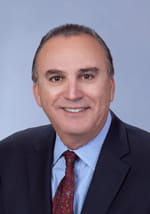RGH Research Institute Researchers
 Michael Pichichero, MD
Michael Pichichero, MD
Director, Rochester General Hospital Research Institute
Phone: (585) 922-2411
Email: Michael.Pichichero@RochesterRegional.org
Dr. Michael E. Pichichero is a physician-scientist, trained and board-certified in pediatrics, pediatric infectious diseases, and adult and pediatric allergy/immunology. His career has been as a clinical and translational vaccine immunobiologist. He brings the experience of a continuously funded investigator by NIH since 1981. He has received over $70 million in federal, foundation, association and industry grants and he has >300 peer-reviewed publications; 150 in the field of vaccines and vaccine immunobiology pertaining to pertussis, diphtheria, tetanus, rotavirus, influenza, tularemia, botulism, and H. influenzae type b, pneumococcal and meningococcal conjugate and candidate nontypeable H. influenzae and S. pneumoniae protein candidate vaccines, and 65 in the field of acute otitis media (AOM). Dr. Pichichero was on the discovery team at the University of Rochester that invented the H. influenzae type b and pneumococcal conjugate vaccines. His role was candidate antigen identification, evaluation of mucosal and serum antibody responses and clinical trial supervision for prototype conjugate vaccines. In 2005, Dr. Pichichero returned to the bench, recruited 3 PhD scientists and a post-doc to launch a focused research team dedicated to vaccine immunobiology in children. He left the Univ. of Rochester in 2009 to accept a new position across town as Director of the Rochester General Hospital Research Institute (RGHRI).
Dr. Pichichero’s lab is focused on prospective, longitudinal clinical and translational studies of acute otitis media (AOM) (R01 DC 08671). His group seeks to define the adaptive and innate immune response deficits among otitis prone (OP) children to infections caused by nontypeable Haemophilus influenzae (NTHi) and Streptococcus pneumoniae (Spn). They seek to understand the immunity deficits among OP children in the context of overcoming the immune modulating effects of upper respiratory viral infections. To better understand NTHi and Spn pathogenesis and assist in vaccine development they are: (1) identifying specific adaptive immune deficits in OP children; (2) determining independent contributions of mucosal immunity in OP children; (3) understanding the role of innate responses to co-infection of respiratory bacteria and viruses; and (4) defining the role of differences in the nasopharyngeal (NP) inflammatory response in shaping the mucosal microenvironment to allow for NTHi/Spn colonization and then infection.
In 2011, Dr. Pichichero’s group discovered the most common immunodeficiency of children (occurring in about 5% of 6 to 24 month olds) they termed Prolonged Neonatal Immune Profile (PNIP). They found that PNIP children have even lower antibody and antigen-specific memory T-cell responses than normal young children to multiple vaccines. Their immune profile appears similar to neonates, leaving them even more susceptible to multiple vaccine-preventable infections. The differences in the immune responses of PNIP children and normal and other low vaccine responder young children may be attributable to multiple factors. The group plans to further characterize the immunologic differences of adaptive immune responses, interactions among immunity effector cells, and mechanisms that contribute to the more limited immune responses to vaccines in normal, low vaccine responders and PNIP young children. Their focus will be on CD4 T-cell, B cell and APC cell responses with respect to activation, function and long-term persistence (memory) after routine pediatric vaccinations, comparing normal, low vaccine responders and PNIP children. The ultimate goal is to understand the key characteristics of immunity in young children that might be augmented by new rational vaccine design and the addition of adjuvants to overcome the lack of response and need for multiple vaccine doses to establish protection from disease and lifelong immunity.
View Dr. Michael Pichichero's recent publications
 Brian Poligone, MD, PhD
Brian Poligone, MD, PhD
Research Scientist II
Email: Brian.Poligone@RochesterRegional.org
Dr. Poligone was first to discover that dysregulation of NF-κB in dendritic cells can lead to an abnormal immune response and ultimately auto-immunity. His interest as both a dermatologist and research scientist is in the field of cutaneous lymphoma. Dr. Poligone’s last published work shows that doxycycline induces apoptosis in multiple different cell lines from patients with two common subtypes of Cutaneous T-cell Lymphoma, Mycosis Fungoides, and Sézary Syndrome. Doxycycline inhibits TNF induced NF-kB activation and reduces the expression of NF-kB dependent anti-apoptotic proteins. He is committed to the study of NF-kB signaling in human disease. He has demonstrated that constitutive phosphorylation of the NF-κB subunit p65 promotes a non-psoriasisiform dermatitis that is also driven by TNF, and hyperplasia leading to the development of pre-malignant keratoacanthoma-like lesions. His current funding is from the National Psoriasis Foundation and the Valeant Investigator-Initiated Study.
